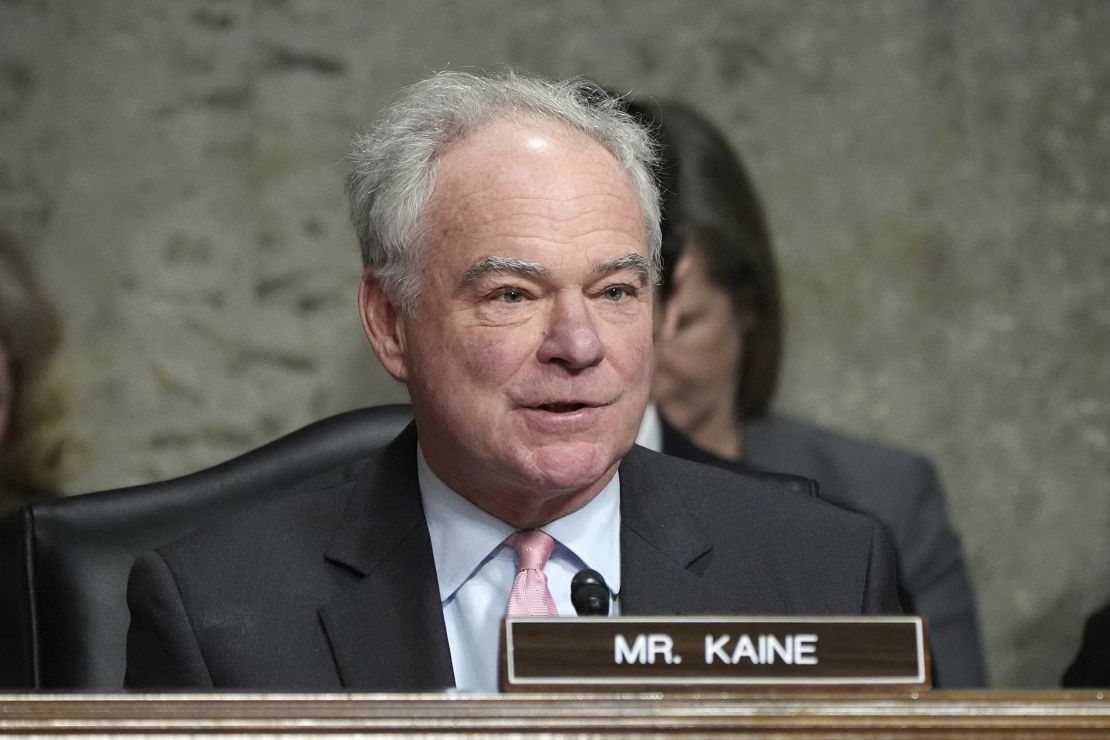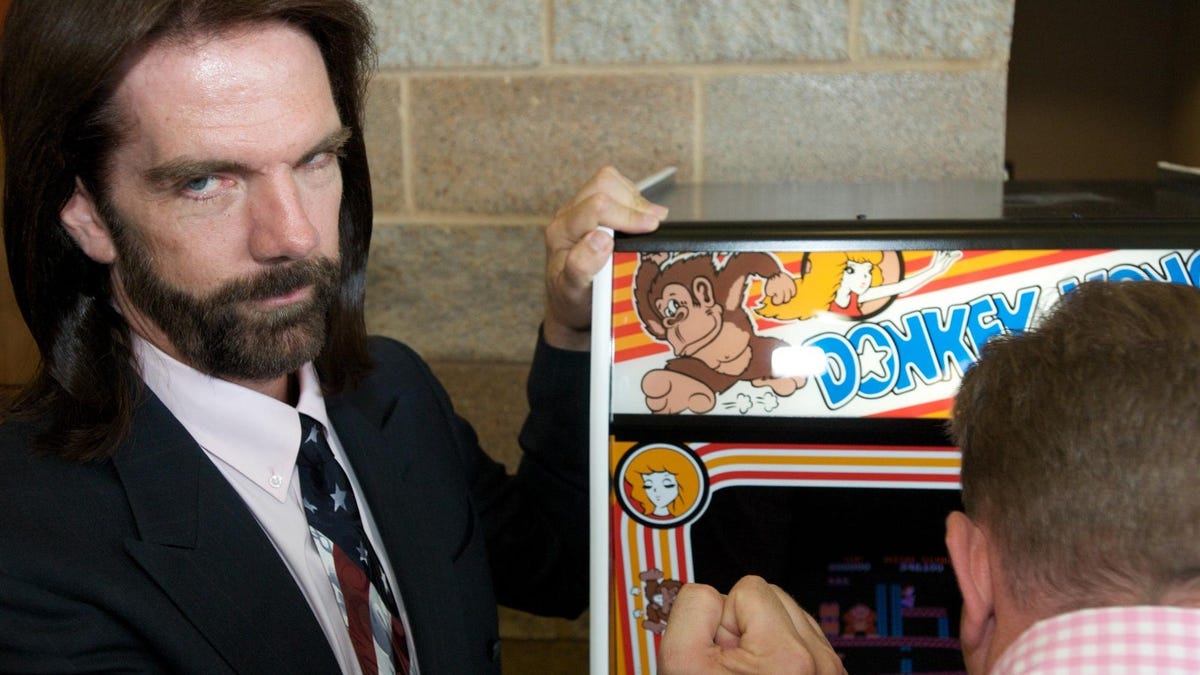CNN
—
Sen. Mitch McConnell was a generational force for the Republican Party — using procedural tactics and political will to stymie much of former President Barack Obama’s agenda, hand President Donald Trump key first-term political victories and deliver a 6-3 conservative Supreme Court majority.
Now he’s the odd man out.
Weeks after relinquishing his leadership post as a new GOP majority was sworn into office, McConnell finds himself, likely in the final stage of his career, untethered from the party he’d led, in turns as minority and majority leader, since 2007.
He has cast a trio of votes against Trump’s Cabinet nominees — putting him at odds with nearly all Senate Republicans. He opposed Pete Hegseth for defense secretary, citing the former Fox News host’s lack of experience and clear vision for how to counter China’s aggression toward Taiwan. He was the sole GOP vote against Tulsi Gabbard for director of national intelligence, criticizing the former Hawaii Democratic congresswoman’s “history of alarming lapses in judgment.”
And on Thursday, McConnell, a childhood polio survivor, cast the only Republican vote against Robert F. Kennedy Jr. to lead the Department of Health and Human Services, saying Kennedy “failed to prove he is the best possible person to lead America’s health agency.”
McConnell has also publicly lamented the GOP’s Trump-fueled drift away from positions that he still holds dear – in support of free trade and a muscular foreign policy.
“He is eager to demonstrate he has an independent streak and some deep convictions that he could not always reveal as a majority leader,” said Indiana Sen. Todd Young, a Republican. “He’s liberated.”
McConnell’s votes against Trump’s nominees come amid a challenging chapter for his health. The senator, who suffered falls earlier this month that left him injured, is now using a wheelchair, sometimes isolating him from fellow senators on the floor. CNN has observed on occasion that McConnell will sit in a private hallway just off the floor in between votes, a stark departure from when he was leader and a flurry of members would surround him and vie for his attention.
Colleagues say McConnell, who turns 83 on February 20 and has nearly two full years remaining in his term, is embracing his new role, free of the job managing an ideologically fractured conference and instead on a mission to trumpet his view that the United States cannot turn away from its role in the world.
“There are recognized responsibilities when you are in leadership — and particularly when you are the leader, as he has been for 18 years. I think you have to give up on the freedom a little bit to act as your own person because you have a responsibility to speak for your full conference,” said Alaska Sen. Lisa Murkowski, a Republican who also voted against Hegseth in January. “And I think you are seeing him now as a stand-alone legislator and happy.”
As he opposed three Trump nominees, McConnell has been careful not to blindside his party’s Senate leadership, aware of the responsibilities that come with those roles and not long removed from the memories of what it was to lead an at times split party.
McConnell’s votes against Trump’s nominees haven’t bothered fellow Senate Republicans, including the party’s new Majority Leader, South Dakota Sen. John Thune, who said McConnell has warned him and the party’s whip, Wyoming Sen. John Barrasso, ahead of time.
“Those weren’t surprises,” Thune told CNN on Thursday. “He’s been clear with us where he is” on Trump’s nominees.
While few have said so publicly, some Senate Republicans are frustrated with one aspect of McConnell’s independent streak.
“One of the things that disappoints me the most is Thune stood with Mitch for two decades and was extremely loyal to him and when Mitch had a play call, Thune followed it sometimes at his detriment,” said Oklahoma Sen. Markwayne Mullin. “I don’t see that favor being returned here.”
And Trump is lashing out at McConnell.
In the Oval Office on Thursday following McConnell’s vote against confirming Kennedy, Trump told CNN that McConnell is “not equipped mentally,” said he feels sorry for the senator and claimed McConnell had not been ready to give up his leadership post.
“He wasn’t equipped 10 years ago, mentally, in my opinion. He let the Republican Party go to hell,” Trump said. “If I didn’t come along, the Republican Party wouldn’t even exist right now.”
The president said McConnell “never really had it,” and said his fundraising acumen was “because of his position as leader, which anybody could do.”
And in an extraordinary moment, Trump seemed to suggest McConnell — a childhood polio survivor who cited Kennedy’s longstanding criticism of vaccines as a reason for his vote against his confirmation as health and human services secretary — may not have had polio at all.
“I have no idea if he had polio,” Trump said. “All I can tell you about him is said he shouldn’t have been leader. He knows that. He voted against Bobby. He votes against almost everything. Now he’s a very bitter guy, and we have a very strong party, and he’s almost — not even really a very powerful member. Let’s say he’s lost his power, and it’s affected his vote.”
Though McConnell, a seven-term senator, has not yet announced his retirement, Republicans in his home state are already lining up for what’s expected to be a competitive 2026 primary to fill his seat. And in that race’s earliest stages, major contenders are all running toward Trump and away from McConnell.
The president’s son, Donald Trump Jr., previewed how Trump-world sees the potential race to replace McConnell, citing one potential candidate’s shot at McConnell and writing this week on X: “If you’re running for office, especially in Kentucky, and you want my support, don’t even bother reaching out to me unless you’re willing to publicly oppose Mitch McConnell like this.”
From McConnell’s vantage point, the view of Trump’s presidency and their relationship is much different. Though McConnell has criticized Trump at times, he has also said he wants him to succeed as president — and he has largely voted with Trump, including on more than a dozen other nominees.
The end of McConnell’s tenure as the longest-serving leader in Senate history — and the decline of his influence in both the Republican Party and the institution of the Senate — is a window into a party that is rapidly evolving.
Trump has campaigned and governed in support of steep, inflation-inducing tariffs, slashing foreign aid and withdrawing the United States from global pacts. McConnell has pushed back on all three fronts.
“In Washington, as we face down a new era of great power competition, influential voices want to leave the lessons of the last such competition, the Cold War, at the door,” McConnell warned at the Reagan Defense Forum in December.
McConnell’s desire for an active US role in deterring aggression from Russia in Ukraine and China in Taiwan, though, has put him at odds with a growing share of the Republican electorate, which has embraced Trump’s more isolationist view.
Still, McConnell’s positions are in line with much of the Senate GOP, which Missouri Sen. Josh Hawley said is “still a caucus that is full of a lot of traditionalists.”
“He probably speaks for a lot of people. At least that is my sense,” said Hawley, who does not share many of McConnell’s views.
As chairman of the Senate Appropriations Committee’s defense subcommittee, McConnell holds a post that has broad power in determining the investments the United States makes in its own military and across the globe.
He also chairs the Senate Rules Committee, which has broad jurisdiction on issues related to election security and Senate procedure like preserving the filibuster, the rule that requires most legislation be subject to a 60-vote threshold — something McConnell has ardently defended and Trump has urged his party to jettison.
He criticized Trump’s announcement of sweeping tariffs that will force US businesses to pay new taxes on goods imported from China, Canada and Mexico, as well as imports of aluminum and steel, in an op-ed in his hometown Louisville Courier-Journal.
“Trade wars with our partners hurt working people most. And the president has better tools to protect American workers without forcing our families and businesses to absorb higher costs,” McConnell wrote in the opinion piece, which was published Wednesday.
Now out of power across all three branches of the federal government, Democrats who have long criticized McConnell are praising his independent streak.
Virginia Sen. Tim Kaine said McConnell is “voting his conscience, and he’s not afraid of anybody.”
He said McConnell is casting votes that many of his GOP colleagues agree with: “They have deep concerns, but they are afraid. They are afraid of MAGA minions being unleashed against them.”
“Mitch McConnell isn’t afraid of anybody or anything right now, which is a great thing,” Kaine said.

However, outside the confines of the Senate, many Democrats argue that McConnell played an enormous role in leading to this moment: Trump in a second term as president, with very few checks on his power.
They blame McConnell’s use of the filibuster for fracturing Washington and remain angry with his decision to block a vote on Obama’s Supreme Court nominee for nearly a year to keep that seat open for Trump to fill — an unprecedented and bare-knuckled move that guaranteed a long-standing conservative majority.
McConnell, they point out, could have backed the Democratic effort to impeach Trump after the January 6, 2021, attack on the Capitol — a moment that led McConnell’s wife, Elaine Chao, to step down as Trump’s transportation secretary. If Trump had been convicted, the Senate could have also made him ineligible to run for president again.
“As a Christian, I believe in redemption,” former Florida Rep. Val Demings said on X. “But the Senator’s critical chance has passed. America could have avoided this madness with a little courage during the 1st and 2nd impeachments. Principle matters all the time.”
Instead, McConnell led Senate Republicans as they refused to convict Trump. He then endorsed Trump — who had lobbed racist insults at his wife and referred to him as “Old Crow” — in March 2024, when it became clear that Trump would be the GOP’s presidential nominee.
Asked if McConnell’s votes against Trump could change those long-standing Democratic views of him, Kaine said: “I am not really thinking about it that way.”
CNN’s Ted Barrett, DJ Judd and Kaitlan Collins contributed to this report.
















